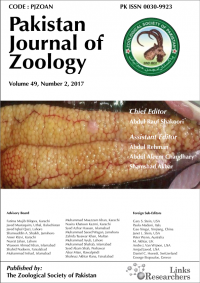ABSTRACT
The presence of viruses in treated and untreated sewage water is a serious issue in the agricultural sector as it is highly dependent on recycled water for irrigation purposes due to the shortage of fresh water resources. In this study viruses in untreated and treatedwastewater has been reviewed to evaluate the health threats to the people. It has been cited that viruses such as Rotavirus, Norwalk virus, adenovirus, and Hepatitis A virus, are common mediators of the diseases in human beings. Including respiratory disorders, bronchiolitis, digestive tract disorders, pneumonia and conjunctivitis. Additionally, traces of COVID-19 were also found in sewage water sources in some countries like Italy bringing attention towards analysis of sewage water. Based on information from cited literature it is estimated that an individual handling sewage water have approximately 1% chance of becoming infected with virus. Treated sewage effluent and reuse of sewage water for recycle purposes must be considered as it may lead to widespread of COVID 19 in coming decade. Thus, a qualitative risk assessment and disinfection of water supplies based on reported infection rates suggested that viruses in treated and untreated sewage effluents may pose the most risk. This risk assessment and a limited epidemiological evidence suggest that TSE is not harmful for the public places but it cannot be neglected, therefore proper guidelines and policies are required.
To share on other social networks, click on any
share button. What are these?









